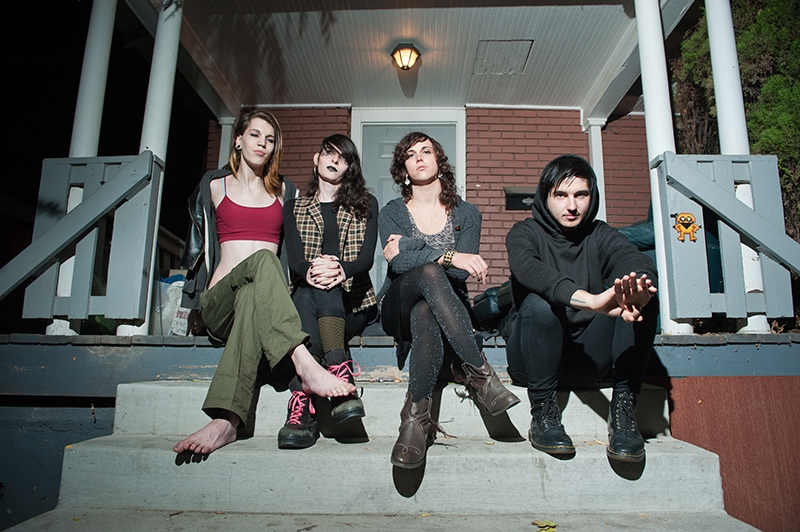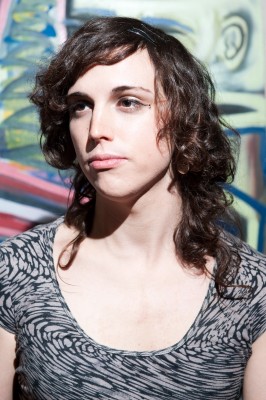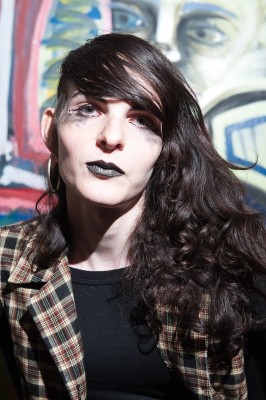
An Education From The Trans* Community
Activism, Outreach and Education
The last 10 months have seen a tsunami of victories for the gay and lesbian community across the nation, as states fall like dominoes to the pressure of a more tolerant generation of Americans. This is no doubt a watershed moment, but there is another community that is still fighting an enormous uphill battle. Tolerance for the trans* community, an umbrella term for individuals who question, change and otherwise fuck with the idea of binary gender, has not advanced at the same pace as it has for gay, lesbian and bisexual individuals. In recognition of Transgender Awareness Month, SLUG spoke with four members of Salt Lake City’s trans* and genderqueer community, who are in their early 20s, to find out about their experiences and extend knowledge through dialogue.

The trans* community is often linked with the gay and lesbian communities, but in reality, their struggles are not quite parallel. Most significantly, the trans* community is about internal gender identification, not sexual attraction—the two are unrelated. Trans* people are also frequently confused with drag queens, but this is also a misidentification, as drag is a performance art, and trans* people who may also dress “outside their gender” are instead expressing their most authentic selves, not putting on a show. What these communities do have in common is their refusal to be tied to rigid social norms that dictate how they relate to themselves and others.
Christian Roybal is genderqueer/gender neutral and works for a left-wing organization supporting various causes. Aisling Spector, who identifies as agender and femme, is a writer who runs an online support community, the Queer Cyborg Collective, for members of the trans* community, and is preparing to pursue writing school in Oregon. Karin is a trans woman/MAAB, who also considers herself asexual. She is a model and sex worker. Madisyn DelPorto previously identified as genderqueer, but currently, she has embraced the identity of a trans woman. She is an independent artist and works in the mental health field at the University of Utah. For all four of them, securing the necessities of life—a job, a place to live, a day relatively free from harassment—is a constant struggle, but one they have accepted in exchange for living on their own terms.

Spector sees a specific thread tying together the discrimination against not only the trans* community, but non-conforming cis people: “Trans women represent a really strong threat to patriarchy because they represent someone being given the chance at male privilege, and then rejecting it, and therefore seemingly choosing femininity,” she says. “It’s femininity and identification with being female and relating to womanhood that’s specifically the issue in a lot of ways.” The existence of the trans* community in and of itself levels significant damage to the artificial constructs of gender roles and, while trans* people typically identify in infinite and unique ways with regard to gender expression, their willingness to bluntly kick down the walls of the status quo offers a sense of freedom to cis and trans* people alike. Adhering to paradigms of strict gender roles is a cause of many societal ills, and the trans* community demonstrates how rejecting that structure can make gender expression a liberating, individualizing experience. Add in the weight of the unique experiences of many trans* people, and it quickly becomes obvious how beneficial the trans* community really is for proponents of gender and sexual equality. “I feel like, for feminism, hearing from the experiences of a woman who was raised and socialized male and, throughout education and whatnot, benefited from male privilege, you’d imagine [feminists and allies would] acknowledge experiences from someone able to grow up in that situation,” says Karin.
Outsiders are inundated with a new language when encountering the trans* community. This cultural practice can seem daunting, particularly the reclamation of pronouns. For example, Spector prefers the pronouns “she/her/hers,” whereas Roybal prefers “they/theirs.” It’s a fascinating way that this disenfranchised culture has found to subvert power structures that can otherwise be impenetrable; they are literally building their identity and their reality through language. This can become tricky for both community members and outsiders alike. Every one of the interviewees expressed fluidity in how they do or have identified, meaning a term may become less useful from one day or year to the next. While some outsiders see this fluidity as an excuse to delegitimize the trans* experience, to others, it is proof that the rigidity of gender expression is a false front, a socially constructed system, which does not correctly account for the variations of human experience. “For me, my gender is this nebulous, unformed thing that is whatever I decide it is at the time,” says Spector.